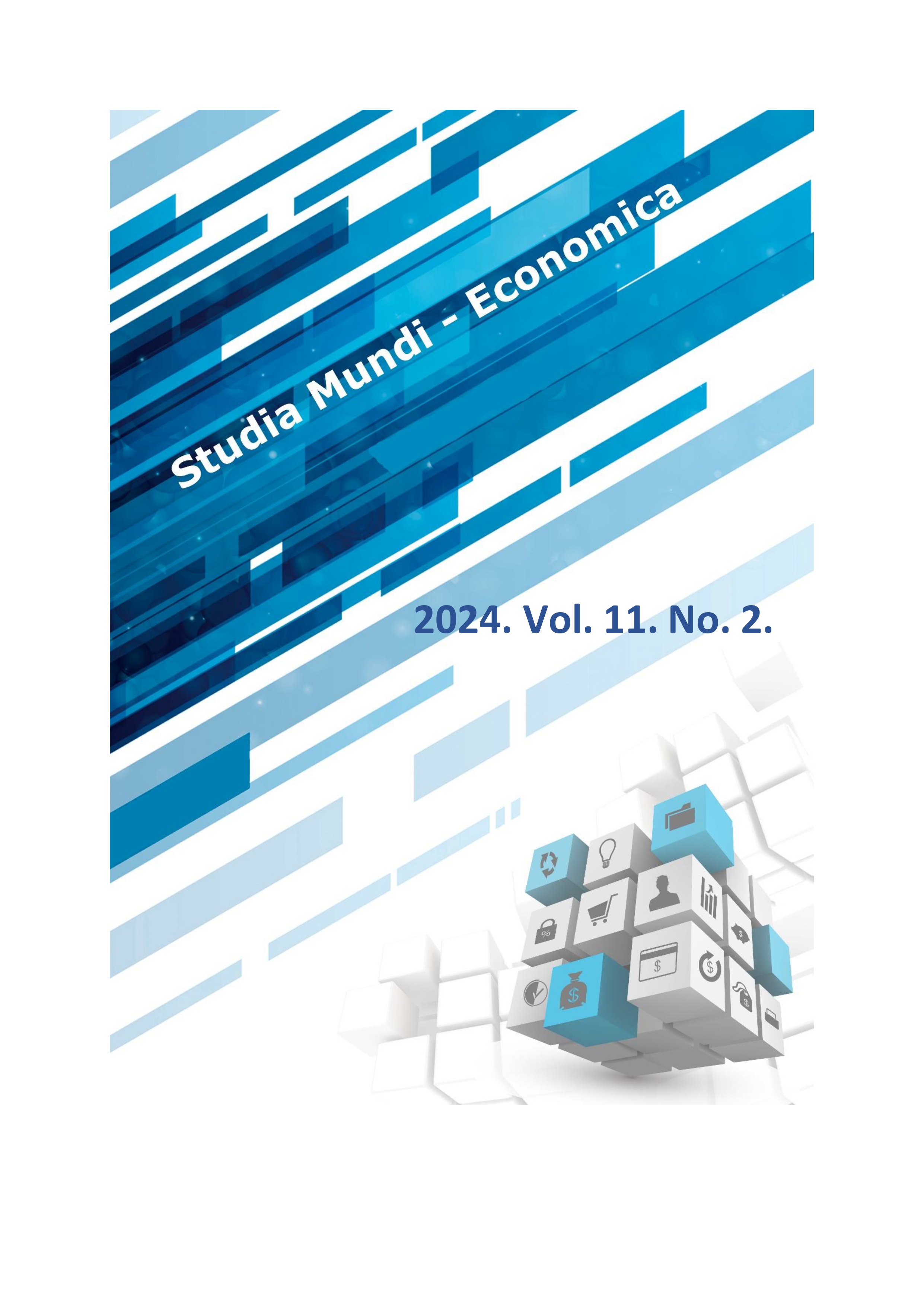Circular economy supply chain and sustainable sourcing
The incorporation of McArthur foundation’s butterfly model into sustainable sourcing
DOI:
https://doi.org/10.18531/sme.vol.11.no.2.pp.43-53Schlagwörter:
circular economy, sustainable sourcing, supply chain management, butterfly model, suppliersAbstract
In response to environmental degradation and resource depletion, achieving sustainability in supply chain management has become pivotal, with circular supply chains and sustainable sourcing emerging as critical strategies. This study, employs a questionnaire distributed to employees across three manufacturing organizations in South Africa, aiming to explore these concepts. The questionnaire draws its theoretical framework from the McArthur foundation’s butterfly model. Findings reveal awareness of circular economy and sustainable sourcing among senior employees as opposed to line workers, underscoring the need to access knowledge in this domain. Additionally, there's a clear emphasis on the cross-functional nature of circular economy activities, highlighting the necessity for departmental collaboration. However, integration obstacles persist, including a lack of initial costs and resistance to change. Addressing these challenges is crucial for a smoother transition to sustainability. The study also indicates a growing emphasis on social and environmental factors in supplier selection, alongside cost-effectiveness. This study also finds that educational initiatives must be accessible to employees at all levels, and cross-functional collaboration remains essential for holistic integration. Ultimately, organizations must recognize the ongoing nature of incorporating circular economy principles and continuously spread knowledge while navigating change management and process transformation challenges for a sustainable future in supply chain operations.
Literaturhinweise
Akhavan, 2017. Sustainable sourcing and supply management strategies. Journal of Purchasing and Supply Management, pp. 137151. https://doi.org/10.1016/j.pursup.2016.07.006
Aydin, Zhang, H & Parker, R. P. (2022). Social responsibility auditing in supply chain networks. Management Science, 68(2), 1058–1077. https://doi.org/10.1287/mnsc.2020.3950
Bhandari, N., Garza-Reyes, J. A., Rocha-Lona, L., Kumar, A., Naz, F., & Joshi, R. (2022). Barriers to sustainable sourcing in the apparel and fashion luxury industry. Sustainable Production and Consumption, 31, 220–235. https://doi.org/10.1016/j.spc.2022.02.007
Chen J,2022. Responsible sourcing and supply chain traceability. international Journal of Production Economics, pp. 248, p. 108462. https://doi.org/10.1016/j.ijpe.2022.108462
Chowdhury, Dey, P. K., Malesios, C., De, D., Budhwar, P., & Cheffi, W. (2022). Circular economy to enhance sustainability of small and medium sized enterprises. In Supply chain sustainability (pp. 10–45). Routledge. DOI: https://www.taylorfrancis.com/chapters/edit/10.4324/9781003018551-2/circular-economy-enhance-sustainability-small-medium-sized-enterprises-prasanta-kumar-dey-chrisovaladis-malesios-debashree-de-pawan-budhwar-soumyadeb-chowdhury-walid-cheffi
Corvellec, H., Stowell, A. F., & Johansson, N. (2022). Critiques of the circular economy. Journal of industrial ecology, 26(2), 421–432. https://doi.org/10.1111/jiec.13187
DelBaldo, & D’Anghela, M. 2020. Circular economy and corporate social responsibility. Symphonya. Emerging Issues in Management, pp. 7087. https://doi.org/10.4468/2020.1.06delbaldo.dang
Economic, N, 2023. The Netherlands: Pioneering Sustainability and Circular Economy Innovations. The Medium. https://medium.com/@economicdonut/the-netherlands-pioneering-sustainability-and-circular-economy-innovations-ba021dea98f
Elkington, J. (2024). The triple bottom line, a brief history of. In Concise Encyclopedia of Corporate Social Responsibility (pp. 232237). Edward Elgar Publishing. https://doi.org/10.4337/9781800880344.ch43
Khan, Shah, Yu, & Tanveer, M022. A systematic literature review on circular economy practices: challenges, opportunities, and future trends. Journal of Entrepreneurship in Emerging Economies, pp. 754795. https://doi.org/10.1108/JEEE-09-2021-0349
Korhonen, Honkasalo, A., & Seppälä, J. 2018. Circular economy: the concept and its limitations. Ecological economics, pp. 3746. https://doi.org/10.1016/j.ecolecon.2017.06.041
Kujanpää, O. (2023). Challenges Faced by Global Manufacturing Companies When Implementing Circular Economy Business Models. https://urn.fi/URN:NBN:fi:amk-2023120433878
McAloone, T. C., & Hauschild, M. Z. (2023). Sustainable Futures from an Engineering Systems Perspective. In Handbook of Engineering Systems Design (pp. 1–23). Cham: Springer International Publishing. https://link.springer.com/referenceworkentry/10.1007/978-3-030-46054-9_4-2
MacArthur, 2022. Allen MacArthur Foundation. [Online] Available at: https://www.ellenmacarthurfoundation.org/topics/circulareconomyintroduction/overview
Pathak N, 2023. embracing Circular Economy Initiatives in Sustainable Procurement: A Path to Lasting Environmental Impact. Sustainable Procurement. https://www.linkedin.com/pulse/embracing-circular-economy-initiatives-sustainable-pandey-pathak/
Saha, K., Dey, P. K., & Papagiannaki, 2022. Implementing circular economy in the textile and clothing industry. Supply Chain Sustainability in Small and Medium Sized Enterprises, pp. 239276. https://www.taylorfrancis.com/chapters/edit/10.4324/9781003018551-10/implementing-circular-economy-textile-clothing-industry-krishnendu-saha-prasanta-kumar-dey-eleni-papagiannaki
Downloads
Veröffentlicht
Ausgabe
Rubrik
Lizenz
Copyright (c) 2024 Sokhetye Anathi

Dieses Werk steht unter der Lizenz Creative Commons Namensnennung - Nicht-kommerziell - Keine Bearbeitungen 4.0 International.
A folyóirat Open Access (Gold). Cikkeire a Creative Commons 4.0 standard licenc alábbi típusa vonatkozik: CC-BY-NC-ND-4.0. Ennek értelmében a mű szabadon másolható, terjeszthető, bemutatható és előadható, azonban nem használható fel kereskedelmi célokra (NC), továbbá nem módosítható és nem készíthető belőle átdolgozás, származékos mű (ND). A licenc alapján a szerző vagy a jogosult által meghatározott módon fel kell tüntetni a szerző nevét és a szerzői mű címét (BY).






